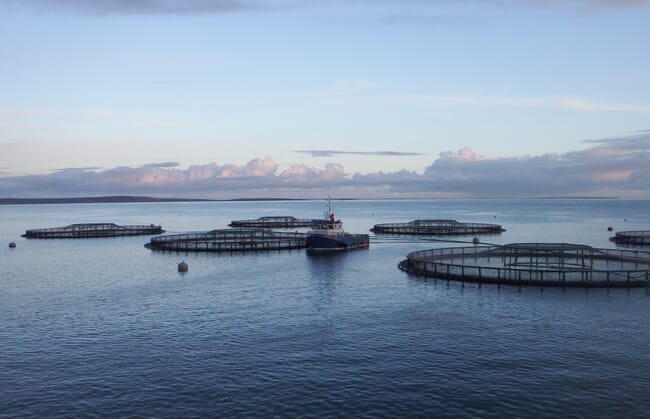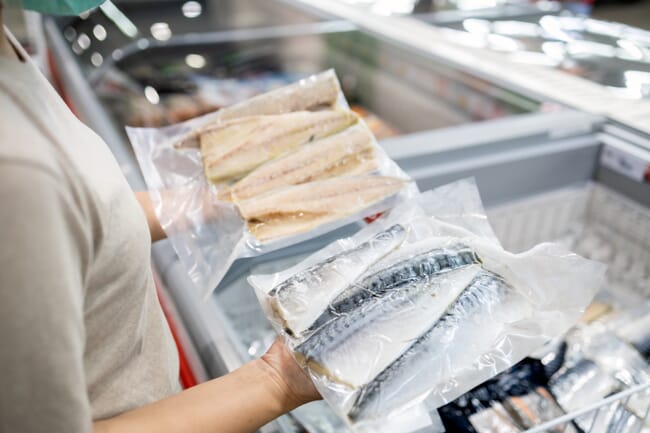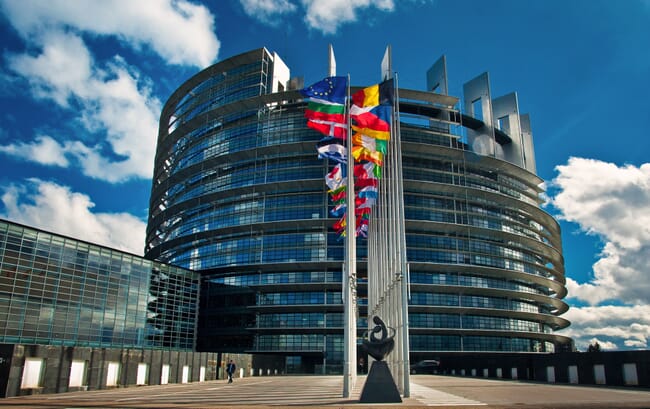
The FEAP is concerned with the slow unfolding of compensation aid for fish farmers suffering losses because of the war in Ukraine and rising production costs © Fusion Marine
Production costs in fish farming have massively increased since mid-2021. The aftermath of the Covid-19 crisis and the war caused by the Russian invasion of Ukraine have sent input costs skyrocketing. Market sale prices have also increased but to a much lesser degree and fish consumption has seen a decline in most EU Member States.
The critical cost situation of fish farming is, in principle, similar to other economic activities. However, a key difference is that fish farms cannot stop their activity and wait for the storm to pass. Fish stocks need to be continuously fed and cared for, so producers must cope with higher costs regardless of the circumstance. Large and small European aquaculture ventures risk their survival in the coming months. Specific public aid for the aquaculture sector has not reached its theoretical beneficiaries.
Fish farming in Europe is a very diverse sector that produces more than fifteen different species through a variety of farming systems, both in fresh and marine waters. The sector is comprised mainly of micro and small primary production enterprises, each of which is affected by this crisis with different degrees of intensity.
The common impacts are over-the-scale prices of feed for farmed fish, the unavailability of some feed raw materials – notably organic inputs, skyrocketing energy prices, overpriced liquid oxygen, transportation costs, the inflation rate that affects packaging materials, maintenance and labour.

Fish consumption has declined in the majority of EU Member States
Higher costs have translated to higher first sale prices of fish and higher final consumer sale prices, but this has happened in an asymmetric way. Sale price increases have been proportionally lesser than the surge on production cost. Nevertheless, consumers face difficulties in affording the elevated fish prices – consumption of aquatic products has already declined in the majority of EU Member States. In times of crisis, consumers tend to forgo fish and opt for other forms of animal protein, even if it is of lesser quality. This trend is unwelcome for the industry, but also brings food security implications as low-income families often decrease their consumption of healthy and nutritious foods when faced with a price crunch.
The EU response
The European Commission was quick to propose compensation schemes at the beginning of the Ukraine crisis and these were immediately adopted by the European Parliament and the EU Council. On March 2022 a Temporary Crisis Framework was approved to support the economy. Also on March the Commission activated new crisis measures to support the fishery and aquaculture sectors in the context of Russia's invasion of Ukraine.
It arrived through the crisis mechanism of the European Maritime, Fisheries and Aquaculture Fund (EMFAF) aiming to bring immediate relief to operators through financial compensation for their economic losses and additional costs. This would enable Member States to grant financial compensation to operators for income foregone due to the market disruption, as well as storage aid to producer organisations.

The European Commission was quick to propose compensation schemes at the beginning of the Ukraine crisis, but the rollout of funds has been slow
In April the Commission brought forward a second package of crisis measures through a legislative amendment to the European Maritime and Fisheries Fund (EMFF) allowing for additional crisis measures to support the EU fishery and aquaculture sectors.
The facts on the ground
Despite these measures, FEAP notes that seven months into the war in Ukraine, none of the supposedly urgent compensation money has reached aquaculture operators in the EU. This can be traced to the complexities of managing the approved aid at national and regional levels. However, the FEAP asserts that managing authorities may be taking an overcautious approach when delivering the approved compensation.
Compensation aid rules for fish farmers have been established considering a certain maximum amount of money per company. It appears that some producers applied for compensation for each farming site instead of applying as part of larger fish farming companies. Most fish farming undertakings own and manage several sites at the same time. The established procedure makes the available amounts of aid insufficient in most cases.
According to the FEAP, the EU’s fish farmers are in a critical situation and the circumstance is being made more difficult an unfavourable legal framework that hinders entrepreneurship and investment. This makes the EU’s aquaculture industry less resilient and more vulnerable to economic shocks. Efforts to make fish farming profitable have failed due to the overcautious implementation of European environmental laws at national and regional levels. To address this, the FEAP advocates establishing legally binding targets on aquaculture production for each Member State.




